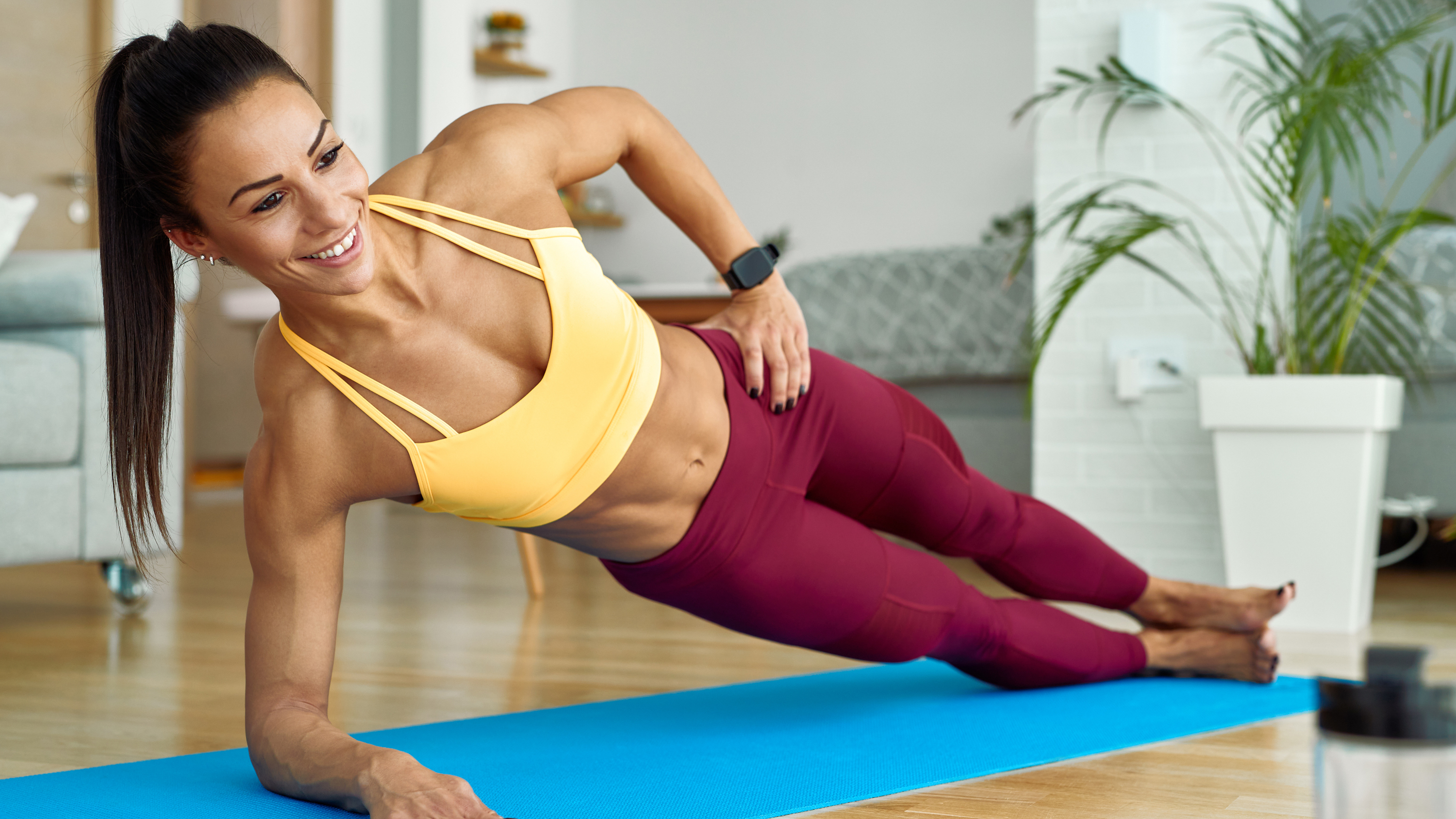
It's crucial to prepare your mind and body for a workout. You can get yourself in the right headspace using a pre-workout meditation, the use poses like the World's Greatest Stretch to gently stretch your muscles before you pick up weights.
But it can be tempting to to skip a monotonous warm-up in favor of getting to the more exciting elements in your routine. I’ve been guilty of forgoing warm-ups in the past, and now I’m paying the price with some nagging lower back issues.
To keep my body pain and injury-free, I recently decided to incorporate the “McGill Big 3” series of exercises into my pre-workout regimen. Not only has my back pain improved drastically, but my squats have felt easier and my runs have gotten faster.
So, before you pick up your set of the best adjustable dumbbells and launch into your favorite muscle-building routine, add this simple, quick three-move pre-workout series into your schedule.
How to do the 3-move pre-workout routine
After delving into the research, Dr. Stuart McGill developed the McGill Big 3 to address optimal core stability. The routine consists of curl-ups, side planks, and birddogs, where each exercise involves holding a position for a few seconds while maintaining core engagement and neutral spine alignment.
You won’t need any additional equipment for the McGill Big 3, but you may want to use one of the best yoga mats for comfort. You may also choose to utilize a stopwatch for accurate timing. If you don't have one handy, you can get Google to keep track of timings for you.
1. Curl-ups
- Lie on your back with a neutral spine.
- Bend your right knee and place your right foot on the ground, keeping your left leg long.
- Place both of your hands between your lower back and the mat.
- Engage your abdominals and slowly lift your head and shoulders off the mat.
- Once you’ve reached the end of your range, hold in this position for 10 seconds.
- Slowly return to the starting position.
- Continue for 10 repetitions, then repeat the exercise with the left knee bent and the right leg extended.
2. Side planks
- Lie on your right side with both knees bent.
- Place your right elbow directly underneath your right shoulder.
- Engage your core and slowly lift your hips off of the mat, keeping them stacked squarely — don’t allow your right hip to shift forward or backward.
- Hold in this position for 10 seconds.
- Slowly return to the starting position.
- Continue for 10 repetitions, then repeat the exercise on the left side.
- If you’d like to make the side plank more challenging, perform the exercise with your legs extended.
3. Bird dogs
- Come to all fours on your mat with your hands aligned under your shoulders, your knees aligned under your hips, and a neutral spine.
- Engage your core and slowly extend your right arm ahead of you and your left leg behind you, keeping the spine neutral – don’t allow your hips to rotate or your lower back to arch excessively.
- Hold in this position for 10 seconds.
- Slowly return your right arm and left leg back to the starting position.
- Continue for 10 repetitions, then repeat the exercise extending your left arm and right leg.
- If you’d like to make bird dogs more challenging, perform the exercise alternating between your two sides.
What are the benefits of the 3-move workout routine?
The McGill Big 3 targets core muscles that are essential for maintaining full-body stability. Without a stable core, you run the risk of injury not only in your back or hips, but throughout your kinetic chain.
The exercises in this 3-move routine prime and strengthen your core muscles so they can adequately stabilize you during movement. And if you’re currently dealing with any back issues, the McGill Big 3 can be a very useful part of your rehabilitation process.
Since it was developed to put minimal strain on the spine, you can utilize the exercises to improve core stabilization without further aggravating certain conditions, and can also lead to better posture, increased overall mobility, and improved athletic performance.







